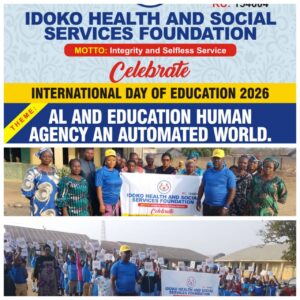Poverty remains a pressing challenge in Africa, with the continent accounting for more than half of the world’s poor. To achieve sustainable development and inclusive growth, it’s essential to address the root causes of poverty and implement effective solutions. In this blog post, we’ll explore the current state of poverty in Africa, its impact on development, and potential strategies for ending poverty.
The Current State of Poverty in Africa
According to the United Nations Economic Commission for Africa (ECA), poverty is the main hurdle for Africa in attaining sustainable development goals. The COVID-19 pandemic has pushed millions of people into poverty, with 62 million Africans falling into poverty in 2020 alone. Today, more than half of the continent’s population lives in extreme poverty, with 546 million people struggling to meet their basic needs ¹ ².
Impact of Poverty on Development
Poverty has far-reaching consequences for Africa’s development, including
– Slow Economic Growth: Poverty hinders economic growth by limiting human potential and productivity.
– Increased Inequality: Poverty exacerbates inequality, making it challenging to achieve inclusive growth.
– Limited Access to Education and Healthcare: Poverty restricts access to essential services like education and healthcare, perpetuating the cycle of poverty.
Strategies for Ending Poverty in Africa
To end poverty in Africa, we need a multi-faceted approach that addresses the root causes of poverty. Some potential strategies include
– Building Strong Economic and Institutional Foundations: Promoting macroeconomic and fiscal stability, eliminating barriers to competition, and safeguarding property rights can help create a favorable business environment.
– Investing in Human Capital: Investing in education, healthcare, and social protection programs can help build a skilled and productive workforce.
– Promoting Equitable Access to Energy: Increasing access to affordable and reliable energy can help drive economic growth and reduce poverty.
– Implementing Pro-Poor and Inclusive Macroeconomic Policies: Targeted spending on safety nets, social protection programs, and climate finance can help support the poor and vulnerable.
– Mobilizing Domestic Resources: Africa must lead the charge in mobilizing domestic resources to recover from economic and social crises.
Donate Today
Ending poverty in Africa requires a collective effort from governments, international organizations, civil society, and the private sector. We must work together to implement effective solutions, mobilize resources, and support the most vulnerable populations. By doing so, we can create a brighter future for Africa and achieve sustainable development for all.
Let’s join forces to end poverty in Africa and unlock the continent’s vast potential. Together, we can make a difference and create a more equitable and prosperous world.





I in addition to my buddies were found to be reading the excellent solutions from your web site and the sudden developed a terrible feeling I never expressed respect to you for those techniques. My young men were for this reason warmed to study all of them and have in truth been having fun with them. Thank you for being well considerate and for having this sort of awesome subject areas millions of individuals are really needing to know about. My very own sincere regret for not expressing appreciation to earlier.
I always was concerned in this topic and still am, thankyou for posting.